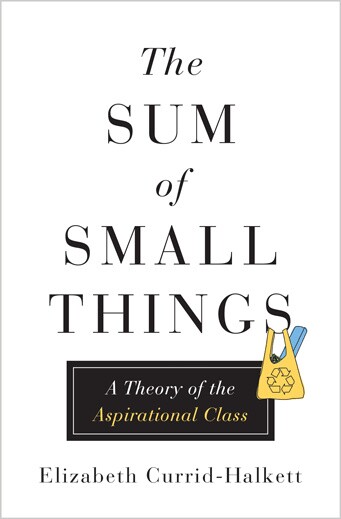We all know about, or at the very least have likely heard of, ‘the 1 percent’ a social caste of the mega-rich who spend lavishly on material goods and experiences the likes of which the middle class can only dream.
But one urban economist is shedding light on a new class of elites, one that is less focused on ostentatious shows of wealth through their purchases and more on making future opportunities for wealth creation and upward class mobility.

In her new book ‘The Sum of Small Things,’ USC professor Elizabeth Currid-Halkett examines what she calls the ‘aspirational class’, a new caste of social elites who use their wealth for things like retirement planning, investing in education, or vacation experiences rather than material goods. They’re concerned with things like eating farm-to-table food, wearing organic clothing, and breastfeeding their kids.
Using data from the Bureau of Labor Management’s Consumer Expenditure Survey, Currid-Halkett looks at how the ‘aspirational class’ is changing how we see wealth in our society and how the way we see traditional social elites is shifting from a concept largely based around the things you possess and more on investments and expenditures that stand to open up opportunities in the future.
Elizabeth Currid-Halkett will be talking about her new book, “The Sum of Small Things” tonight, June 1, at 7:00 p.m. at Chevalier’s Books in Larchmont.
Guest:
Elizabeth Currid-Halkett, professor of urban and regional planning at the University of Southern California; her latest book is "The Sum of Small Things: A Theory of The Aspirational Class" (Princeton University Press, 2017)











